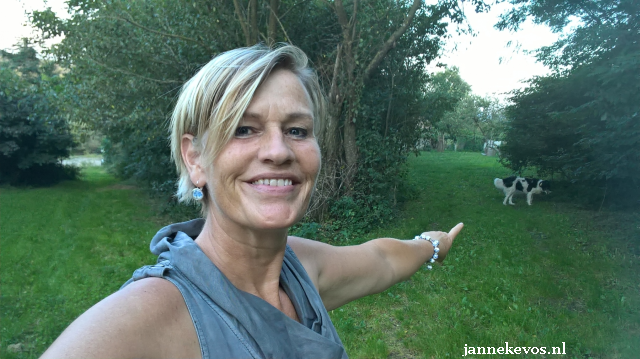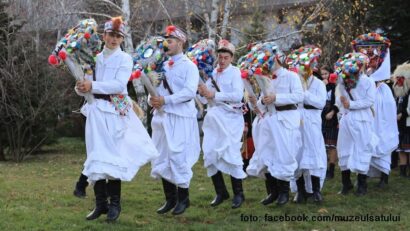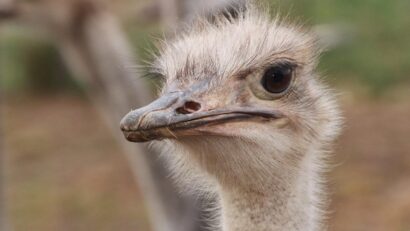Romanian-Dutch Life Lessons
Dutch writer, journalist and nature lover, Janneke Vos de Groot, settled in Romania 15 years ago

Ana-Maria Cononovici, 10.08.2021, 12:35
As a journalist, writer, and nature lover, Janneke Vos de Groot is from the Netherlands, and she settled in Romania 15 years ago. She and her husband had a passion for Icelandic horses from back home, and the two actually met at an equestrian competition. They settled in Romania in a village called Oarba de Mures, and they started developing the local rural tourism.
Janneke Vos de Groot told us how she and her husband got the idea of becoming farmers. Because in the Netherlands a piece of land is so expensive, they looked around Europe and picked Romania. It wasnt so easy after all, so we asked them what the biggest difficulty was:
“The language, of course! We had a teacher in the Netherlands, of course, a very good one, who speaks the language. We were very happy moving to a very small village, but no one speaks either English or German there, so we had to handle things in Romania from day one. At first, the language was very hard, but after that came another culture and the bureaucracy. Those are the biggest problems.”
Janneke told us about her passion for horses:
“This was our hobby back in the Netherlands, Icelandic horses. My husband and I ride a lot, and breeding Icelandic horses has always been a passion for us. We came here with 9, and now have 23. We have 3 or 4 that we ride, but most of them we have for visitors. Riding an Icelandic horse is different, because the have a different style of walking. A regular horse has a step, a trot, and gallop, but Icelandic horses have just two ways of ambling, which you have to know, otherwise you cant ride them.”
Icelandic horses are the only ones in the world the a so-called tölt, which means that at a given time the horse has three hooves on the ground. Because of this, the horses have a light movement, very stable for the rider, and they also can speed up from a trot to a gallop very easily.
Janneke told us that she has found a very good place for the horses, and also for people:
“Back home we always worked in cities, but lived in the country. We are used to wide open spaces. It was more for the horses that we looked for wide open spaces here in Romania, a place for farming. The horses are always outside, they have a lot of room to move, even in winter, its very healthy for them. Everyone says that here in Oarba de Mures we have plenty of clean air. I dont know if it is more so than in other places, but this is a small village, the scenery is beautiful, we have lots of wildlife. Not in the village as such, but in the area we have bears, wolves, jackals, foxes, deer, it is beautiful! Mostly for the guests from Holland, I always tell them how beautiful it is.”
Janneke is deeply involved in the development of the area, so she talked to us about things that bother her, and she plans on changing:
“The one thing that bothers me is the littering out of cars, trash getting thrown everywhere. This is something that we have to sort out this year in Oarba de Mures: to run a campaign to clean up. There is no forest without deadwood, but in the Netherlands we are just used to cleaning up garbage, taking it to special places and not leaving it lying around, but here it is a bit different, and there are a lot of people that just throw stuff out of their car window. Most of it is plastic bottles, which stay around for about 100 years. It is a pity, I always tell people around here that I wont be inheriting this village, neither will my children, but it is their children that will, and that is why they have to gather up refuse and throw it in the proper place. We have to set an example in this sense.”
Janneke Vos de Groot has written six books about Romania, especially about the area they have settled in, tempting many tourists to visit. As she said, when they arrive to the area, she takes people everywhere:
“I usually go with them to Brasov, or Cluj, which are great cities, but then I ask them what they liked best. They always tell me it is the village, Oarba de Mures, where they saw simple folk working and living. Usually, the villagers just prepare some simple Romanian food for the guests, and that makes for a very special atmosphere. Not even the Parliament Palace in Bucharest makes for such popularity as a good lunch in Oarba de Mures.”
We also found out that Janneke loves traditional Romanian food, such as aspic, tripe soup, stuffed cabbage, and meatballs. She does still cook Dutch food at home, as she let us know.






























